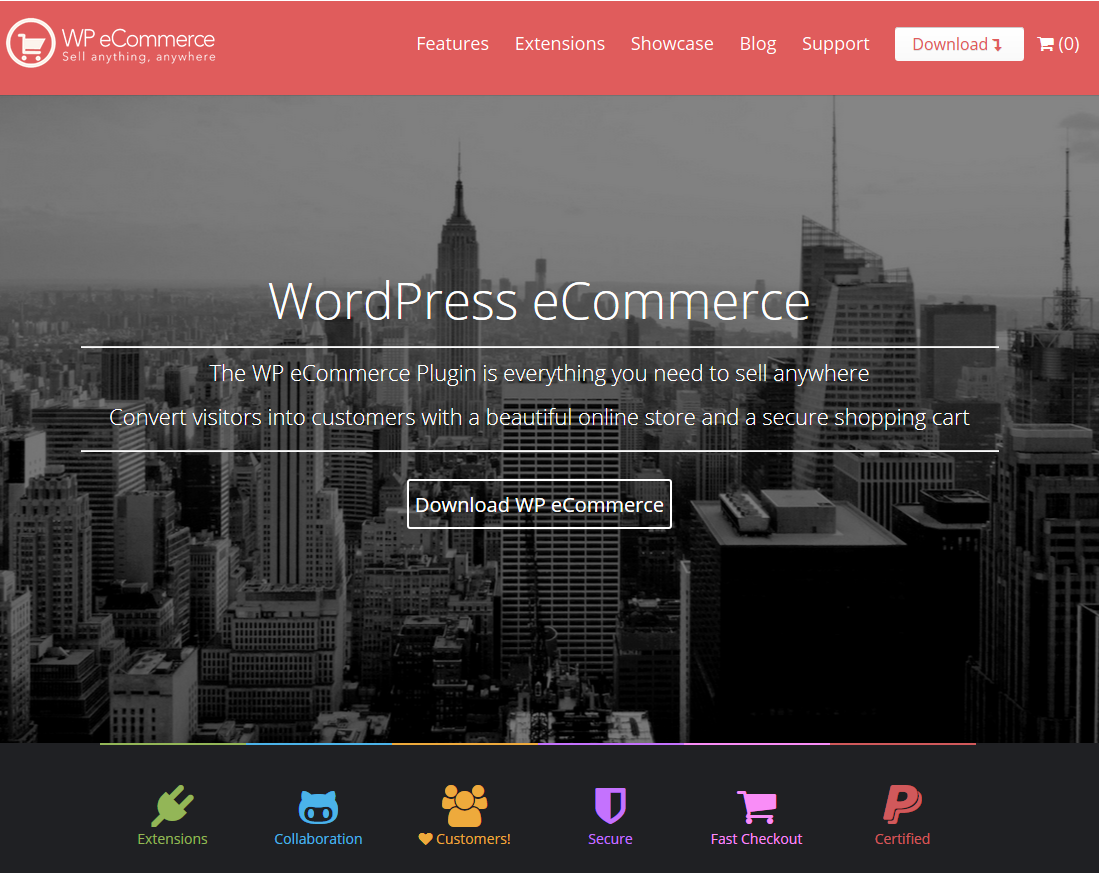In what has been a long time coming, WP eCommerce has changed the URL of its website from GetShopped.org to WPEcommerce.org. Between the Shopp e-commerce plugin and Getshopped.org, it was confusing as to which product the site represented. The move to a more recognizable URL is the pinnacle of a series of improvements the project has undergone in the past few years.

A Multi-Year Rewrite of WP eCommerce
At nearly a decade old, WP eCommerce has gone through its share of ups and downs. It has a reputation among some developers in the WordPress community as being bloated and poorly coded. “The purpose of the rewrite is to bring us back up to latest WP coding standards,” Dan Milward, Founder of WP eCommerce, told the Tavern. “When we first released WP eCommerce, WordPress had sketchy coding standards at best (WordPress was at v1.5). As such, making a complex eCommerce Plugin back in the day was difficult and we had to do things in ways that are now frowned upon.”
To put this in perspective, custom post types, taxonomies, and many of the hooks and filters developers rely on today simply didn’t exist. The legacy code has plagued the project from the beginning and is largely responsible for its negative reputation.
Not having a robust set of WordPress coding standards to develop from allowed other eCommerce plugins to enter the market and leap frog over WP eCommerce. “We feel like those days are behind us and that it’s our turn to do some leap frogging.” Milward said. The alignment with today’s coding standards means WP eCommerce has a smaller footprint, runs faster, and is easier to maintain.
A Team Effort
Gary Cao, who previously lead the development of WP eCommerce, helped pave the way towards aligning it with today’s coding standards. Justin Sainton, co-founder of WP eCommerce, has taken over the role and is leading the development of WP eCommerce. Sainton is a well known developer in the WordPress community and has an impressive array of core contributions to WordPress.
Sainton and Milward approach problems from very different yet, complimentary angles. The relationship has helped create a better business allowing each to focus on their core strengths. The WP eCommerce support team has been instrumental in being the front line of the company. “These folks are the front line and they are turning public opinion around in the WordPress.org forums and in premium support. They are doing a great job at serving the WP community,” Milward said.

Contributions have come from non WP eCommerce core developers as well, including the competition. Pippin Williamson, founder of Easy Digital Downloads, has 45 commits to the project since 2013. In early 2013, Williamson explained in detail why he contributes to WP eCommerce.
I empathize with projects attempting to overcome a bad reputation when they clearly want to earn a better reputation. If you write bad code and never actually try to improve your project then I have a hard time believing you actually care about your users’ experience. The team behind WP e-Commerce is NOT one of those teams that doesn’t care about improving their plugin. They are one of the most down to earth, caring team of developers I’ve met. They really, really care about their users and customers, and they truly want to make WPEC a kick ass plugin again.
Ben Huson, Lee Willis, Jeff Shutzman, and Curtis McHale, among others also contribute to the project.
The Future of WP eCommerce
With the launch of the new site complete, Milward says the next feature they’re working on is implementing a theme engine based on the work John James Jacoby put into bbPress and BuddyPress. New object-oriented APIs and integration with the upcoming WP-API are among some of the other features planned for a future release. There will also be improvements to the WP eCommerce marketplace ecosystem for developers.
Time to Give it Another Chance?
WP eCommerce is nine years old and continues to chip away at legacy code, but has made substantial improvements over the past two years. Perhaps it’s time developers and users give it another chance. WP eCommerce is free to use and available in the WordPress plugin directory. If you’ve recently launched a project or use WP eCommerce, feel free to share your experience in the comments.
Thanks for the great write-up, Jeff. Really appreciate all the kind words. As anyone who runs an open source project knows, it’s a labor of love as much as anything else. Always nice to see hard work recognized.
If anyone is curious about the types of sites using WP eCommerce today, we have a great showcase up –> https://wpecommerce.org/showcase/
Cheers!